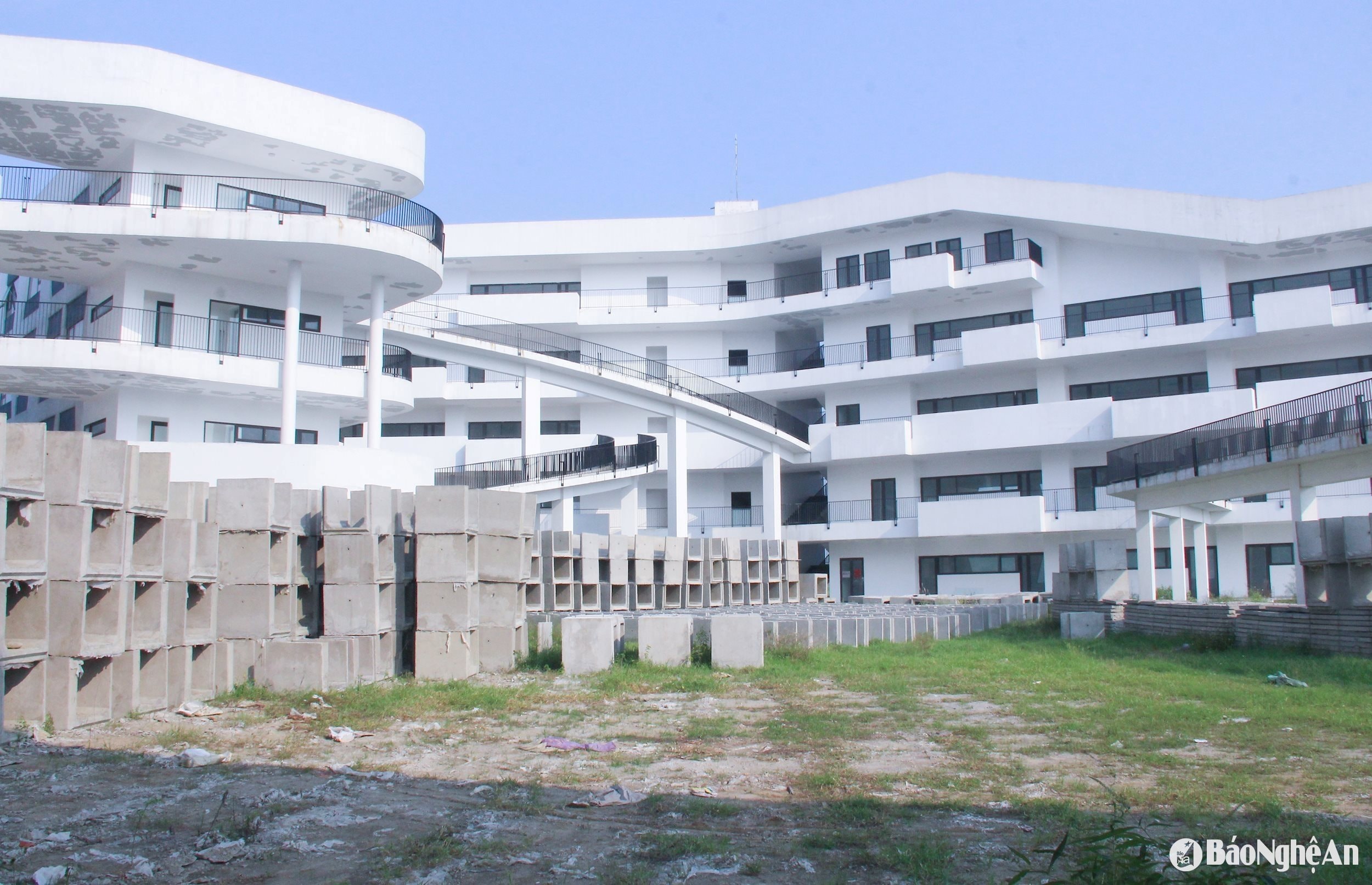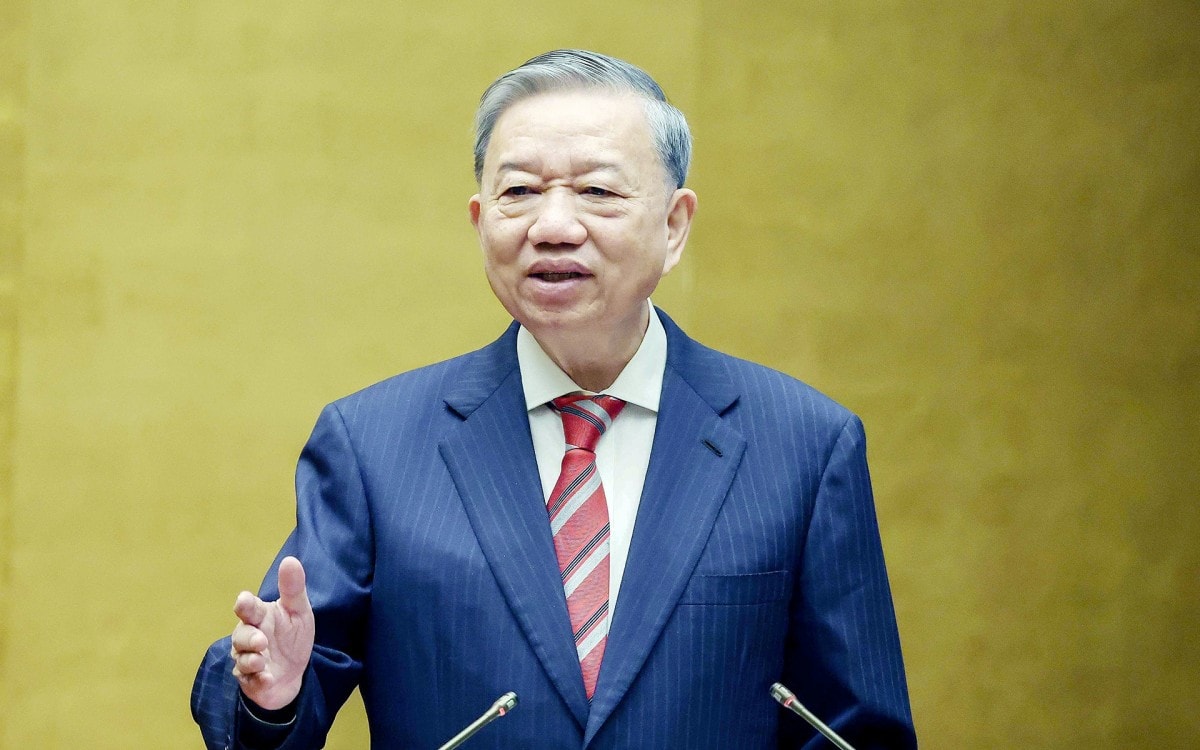Saving practices in localities in the spirit of the article by General Secretary To Lam
The article “Practicing thrift” by General Secretary To Lam was received by cadres and party members in Nghe An with a spirit of sympathy, high consensus and willingness to participate and contribute, strongly spreading the spirit of thrift and anti-waste among cadres, party members and people. Nghe An Newspaper recorded some opinions from the grassroots on proactive concretization with practical actions, contributing to building a sustainable developing society.
* * * * *
.png)
Following Nghe An Electronic Newspaper, I had access to the extremely profound article by General Secretary To Lam on “Practicing thrift”. The leader of our Party frankly acknowledged the reality of the political system and the contingent of cadres and party members in the work of practicing thrift and fighting waste. Without evasion or excuses, the article pointed out in a comprehensive and serious manner the situation of waste that is widespread in all areas of social life, with increasingly sophisticated, complex and diverse levels. The article also showed the high political determination of the Central Committee, the Politburo, and the Secretariat in promoting thrift practice as a fundamental solution to build a sustainable country.
It is noteworthy that the approach to saving is not only from an economic perspective, but also a cultural, ethical and social responsibility category. The example of President Ho Chi Minh - a living symbol of thrift and integrity - shows that traditional values always have the power to guide and motivate the present and the future. Not only analyzing the current situation, the article also proposes many practical solutions such as perfecting institutions, reforming administration, strengthening discipline, and building a culture of saving in the whole society.
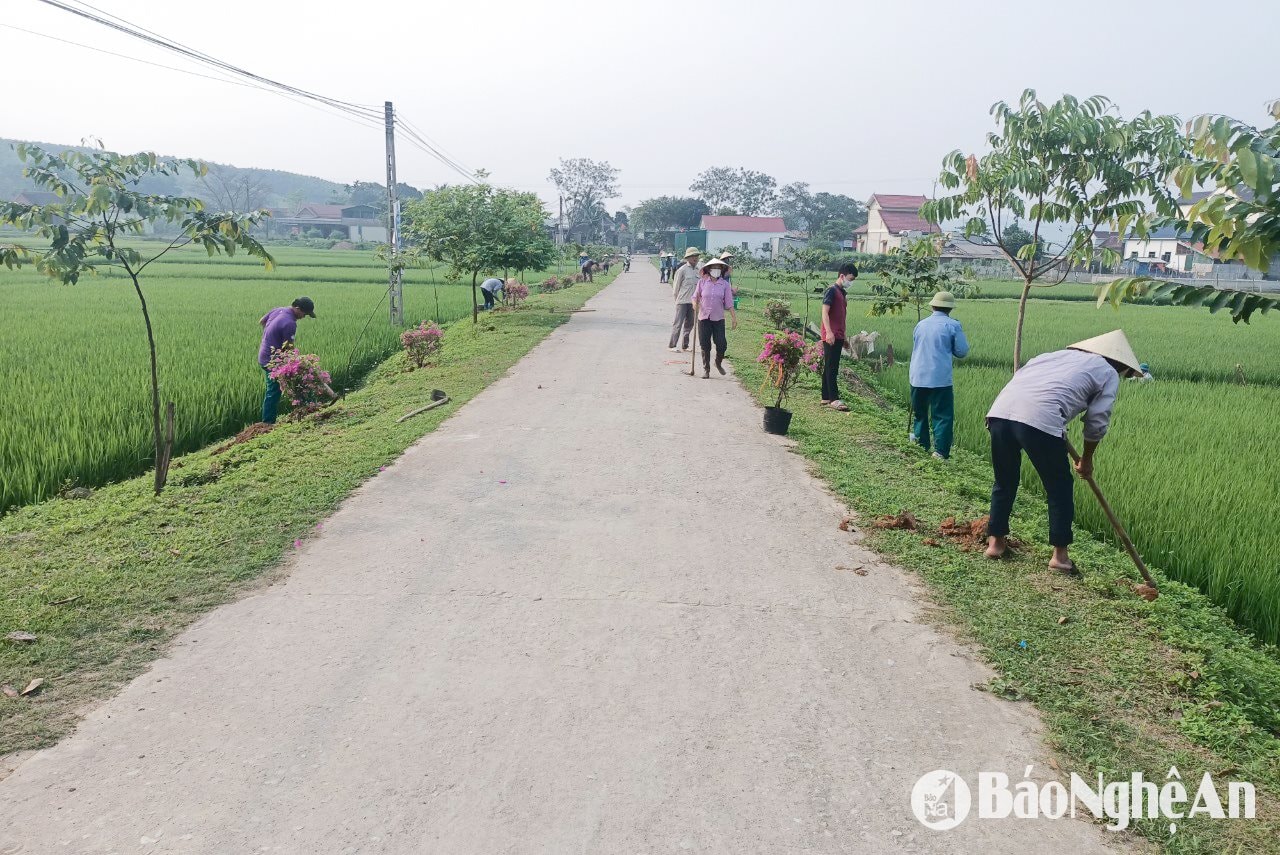
General Secretary To Lam emphasized the role of leaders in setting an example, thereby spreading the spirit of responsibility and thrift to the entire political system and each citizen. Thrift is no longer the sole responsibility of any individual or organization, but a widespread movement, requiring the synchronous participation of the entire population.
From the article of General Secretary To Lam, in my opinion, to realize the solutions, each cadre and party member needs to voluntarily raise awareness, study and follow Ho Chi Minh's thoughts on thrift and anti-waste. Each person needs to build the habit of reasonable and economical spending from the family, to the agency and unit; at the same time, promote the application of information technology in management and operation, reduce unnecessary costs, increase transparency and efficiency.
Saving today is not only a countermeasure to difficulties, but also a strategy for the future. It is the foundation for Vietnam to steadily rise up, build a rich, civilized and sustainably developed society in the new era.
* * * * *
.png)
The article “Practicing thrift” by General Secretary To Lam is creating high consensus among cadres, party members and the people. Right from the first lines of the article, the General Secretary strongly affirmed: “Thrift and anti-waste are two elements that are organically linked together, two pillars to achieve prosperity and wealth for the entire family, country and society”. This is not only a political message but also a profound reminder of practical values in daily life.
For cadres, party members and people in rural areas, practicing thrift is even more practical. Thrift must go hand in hand with fighting waste and avoiding waste to be considered thrift. Only when fighting waste, thrift is truly meaningful and effective. This responsibility does not only belong to those with positions and powers but is the duty of everyone - from cadres, party members to people. Changing thinking and awareness about thrift is the first step for a transformation in culture, lifestyle and working style.
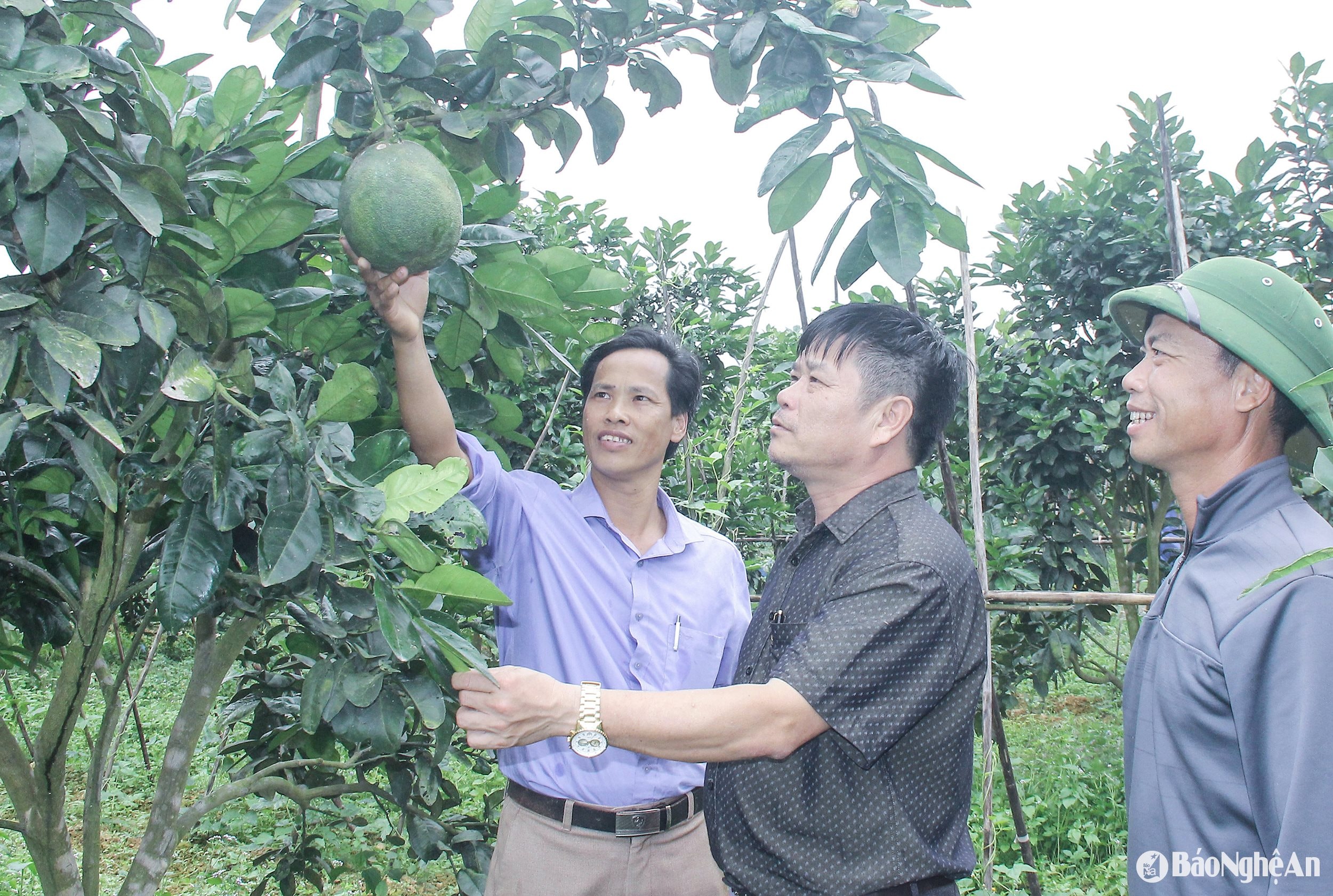
In my opinion, there is no need to start with big things, the spirit of saving must be initiated from the smallest actions: turning off the lights when not in use, saving water, and making effective use of land resources. A farmer who leaves land fallow after each crop season is wasting development potential; a cadre who is late for work, making people wait, is wasting precious time of society; a Party organization that has not done a good job of propagating the practice of saving, causing cadres, party members and people to waste resources and time, then that Party organization has not done a good job of practicing saving.
Therefore, to effectively practice thrift and combat waste, in my opinion, all levels and sectors need to do a good job of ideological work. Each Party organization and local government needs to step up propaganda and mobilization so that each individual is clearly aware of their role and responsibility in thrift and combat waste; in particular, cadres and Party members, especially leaders, must be pioneers and set an example to spread the spirit of thrift in the community. Save to "gather the wind to make a storm", creating resources for the family, for the agency, for the homeland and the country to develop.
* * * * *
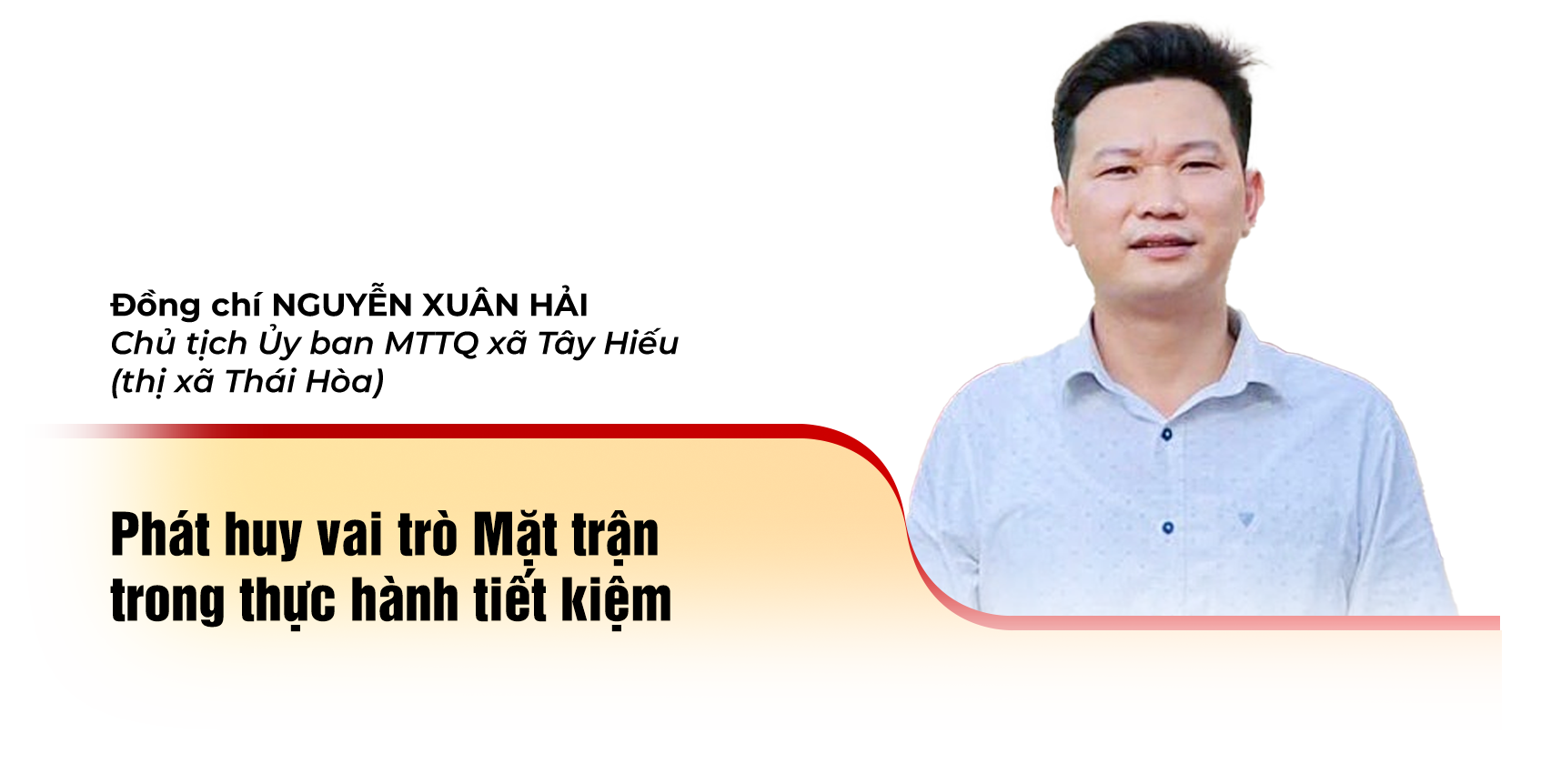
Reading the article “Practicing thrift” by General Secretary To Lam, I really appreciate the profound content about the important role of thrift and anti-waste in the current period. This is not only a traditional moral quality of the nation, but also a strategic task, contributing to building a streamlined, effective and sustainable administrative system.
In the locality where I work, the merger of commune-level administrative units is being implemented in accordance with the Party and State's policies. In this process, combining thrift practice with streamlining the apparatus not only helps reduce budget expenditure but also creates conditions to improve the quality of service to the people.
As Chairman of the Commune Fatherland Front Committee, I clearly identify the responsibility of being a “bridge” between the Party, the government and the people. The Front needs to take the lead in widely disseminating the significance of commune mergers associated with the spirit of thrift, arousing consensus and community responsibility, and fighting against localism and fear of change.
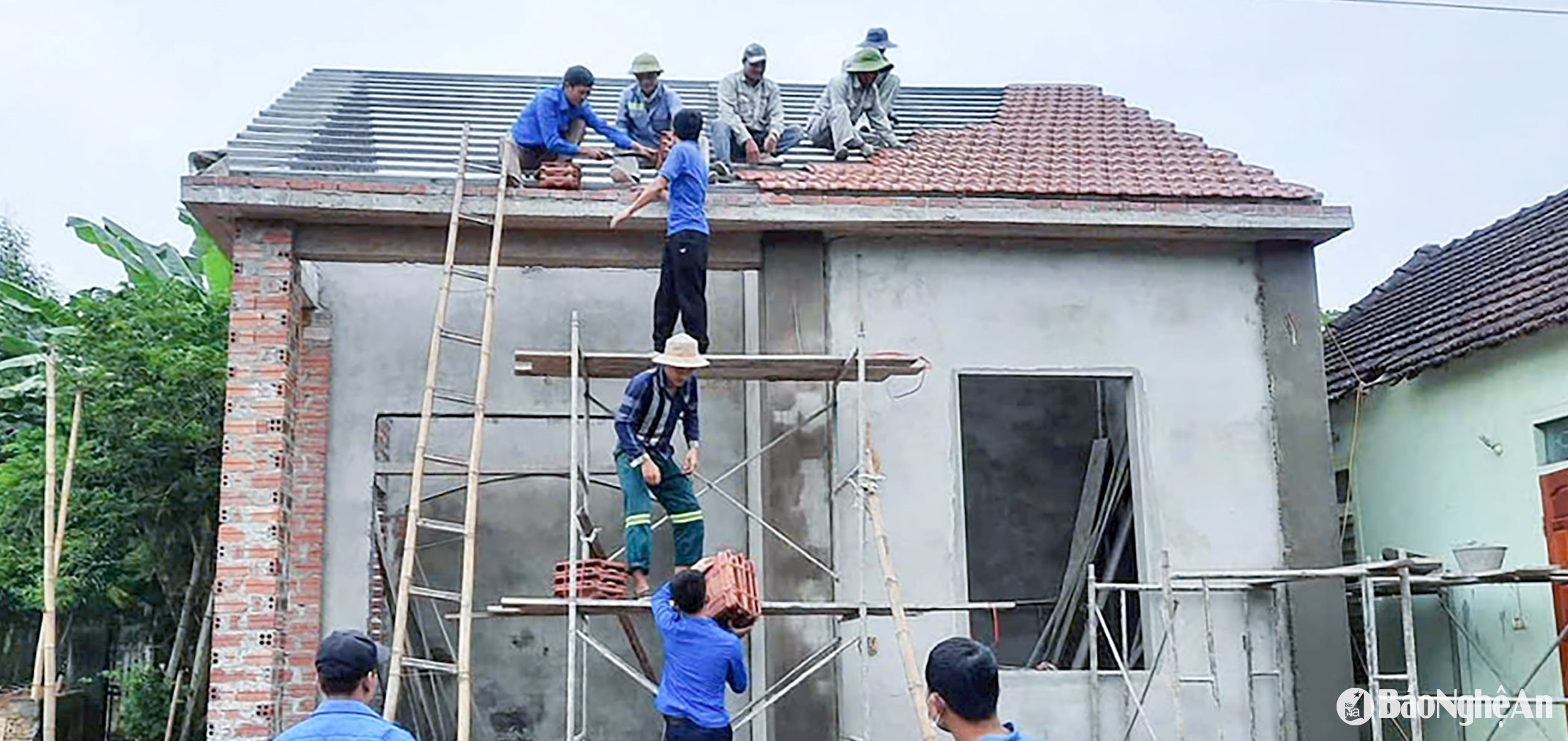
We also actively coordinate to review and propose plans for arranging and using facilities, offices, and cultural houses to maximize utilization and avoid waste after the merger. Conferences and meetings with voters are also organized in a compact, efficient, and cost-saving manner. People are encouraged to contribute their opinions in the planning of new wards after the arrangement, avoiding suspended planning and wasting land and resources; at the same time, monitoring community investment to avoid loss and waste.
Along with that, the Fatherland Front will also launch the movement "Economical Residential Area - Newly Developed Ward", taking residential areas as emulation units, competing in saving electricity - water - daily life - organizing ceremonies, thereby replicating typical examples. The Front also proactively monitors the use of the budget, especially in repairing and purchasing assets after the merger, to prevent unnecessary expenses.
Finally, each Front official must set an example of thrift, avoiding formality and ostentation in organizing events and conferences. Thrift in merging commune-level administrative units is not only the responsibility of the government apparatus, but also an opportunity for each organization and individual to spread the spirit of innovation from the grassroots, contributing to building an honest government, close to the people and for the people; spreading the spirit of thrift, creating a foundation for stable, long-term and sustainable development in the locality.
* * * * *
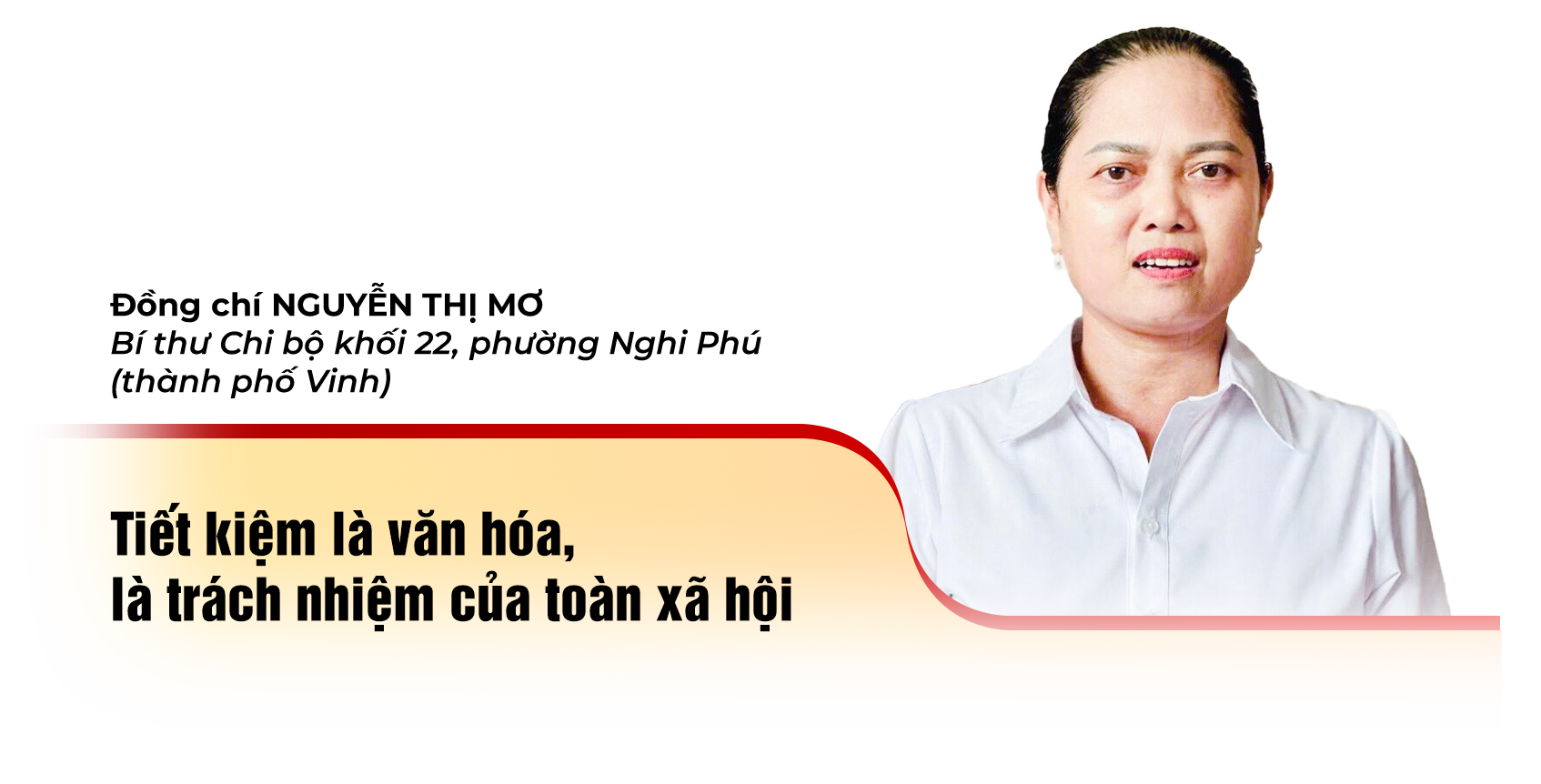
General Secretary To Lam's article sent out a strong message: Saving and fighting waste are two pillars to achieve prosperity and wealth for the family, the country and the whole society.
The General Secretary also said: Looking back at the revolutionary stages, under the leadership of the Party and President Ho Chi Minh, the reasonable spending and thrift practice of each Party member and each citizen have helped create resources to build the country, ensure social security, and improve the quality of life of the people. The article also frankly pointed out the realities of waste and proposed solutions, emphasizing: Practicing thrift is a common responsibility and needs to become a daily cultural lifestyle of each person. This requirement requires that everyone must have a sense of thrift, from cadres, civil servants to the people; everything must be thrifty; from collective savings to personal savings of individuals and families. Thrift is also a manifestation of good culture of each person.
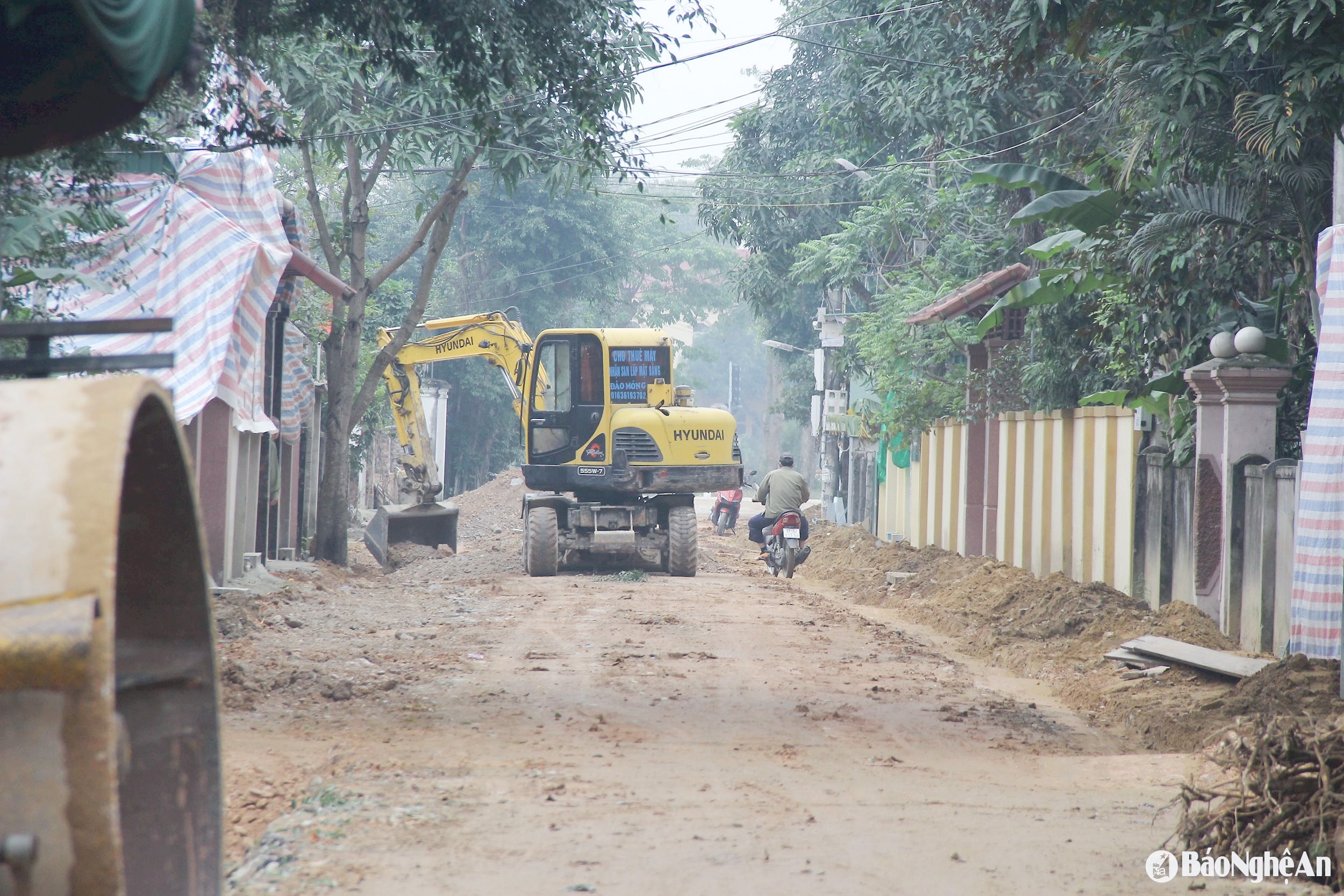
Nowadays, in social life, every day, we often see many images and stories of waste. Urban areas, investment projects are unfinished, abandoned for many years; investment projects are put into use but there is no solution to protect and ensure the life of the project. A typical example is the Chu Trac asphalt road in the locality which has just been put into use for a few years, now the trucks carrying soil and rocks for construction have peeled off the asphalt layer, even some sections have been flooded, creating deep holes, but no agency has stepped in to handle it.
The use of textbooks by students today is also causing a huge waste of the country's resources and in each family. The use of electricity in many agencies and families still occurs; many offices of officials and civil servants have air conditioners, electric fans, and lights still on when there is no one in the room. Even the use of plastic bags when shopping, if you only think about the convenience, utility, especially the things that come with the purchase without costing money but do not save, then it needs to change, because in addition to the factor of saving when having to produce it and saving in the process of waste treatment, including the harmful effects of plastic waste when it is difficult to decompose on the market.
Saving must start from the thinking, awareness, and sense of responsibility of each cadre, party member, and citizen, especially cadres, party members, and leaders at all levels, agencies, and units, to spread to the community; contributing to realizing the guiding spirit of the Party leader, General Secretary To Lam: "Practicing thrift and fighting waste is one of the most fundamental solutions for the country to overcome all storms in the context of the international situation with many fluctuations, directly and multi-faceted impacts on socio-economic development and ensuring social security".
